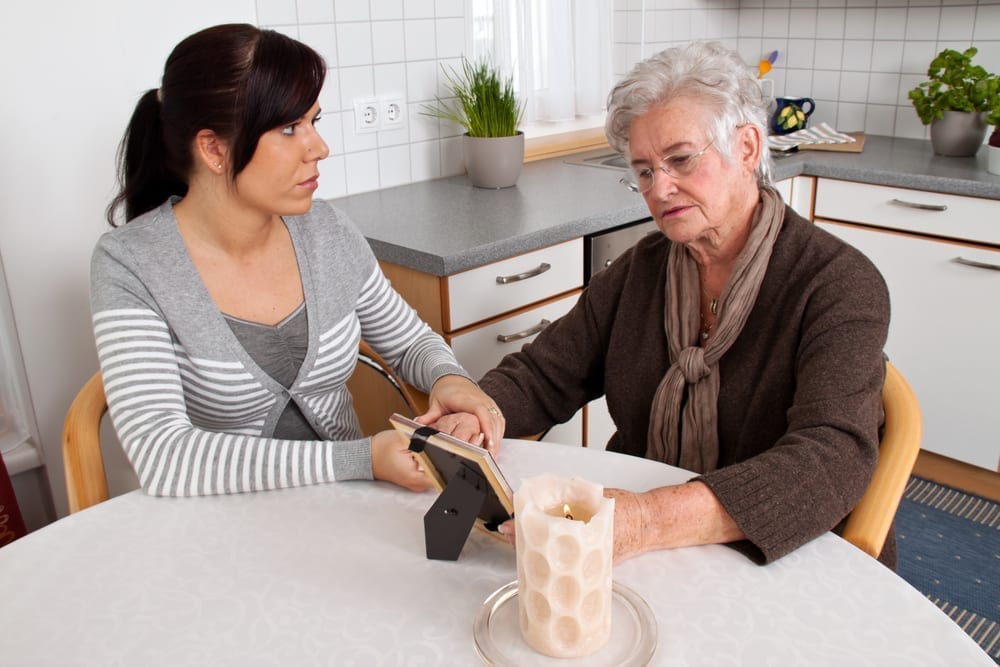
What is a Death Doula?
- Peggy Holthaus
- Article
- Grief Counseling
When most of us hear the word, “doula,” we think of a childbirth coach. However, doulas aren’t only available for when life begins, they can help when life ends too. They are called death doulas, end-of-life doulas, spiritual midwives, death midwives, or doulas to the dying. Their work focuses on creating a safe space for the one dying and the family to engage in the emotional and spiritual labor needed to prepare for death. They are there to help facilitate a “good death,” according to the wishes of the dying person.
Doulas first help the dying to explore the question, “How do I want to be remembered?” This is facilitated mostly through the process of life review. At Hosparus Health, we do this kind of work using the Life Review Workbook. This is often facilitated by our volunteers, and sometimes the stories are recorded for future generations. Legacy work can also involve making memory books, life scrolls, letters, or a collection of recipes. It is a way for families to hold onto their loved one and continue to be inspired. The process also helps the person deal with any regrets, unfinished business or guilt that remains troubling.
Doulas then can help the dying to determine how they want to spend the last days of life. Questions for consideration are:
- Where do you want to die and why?
- How will the space around your bedside look, sound, smell and feel?
- What music do you want to hear during your dying process?
- What do you want to read to you at times?
- How do you want people to talk to you and touch you?
- Are there any religious or spiritual rituals or guided visualizations you would like to experience?
- What people and animals do you want present for your last breath?
It is then the job of the doula to ensure the patient’s wishes are honored during the Vigil time when the person is actively dying. It is during the vigil that the doula stays with the family around the clock, as much as possible.
Lastly, doulas help the dying to determine post-vigil care. What does the dying person want the loved ones to do after death? Some options include sitting quietly, praying, sharing memories, washing the body with certain fragrances, dressing in a certain outfit, and waiting a while before calling the funeral home. Doulas help with home funerals and are trained to have the knowledge to provide the family with after life alternative death care options, including green burial, flameless cremation and alkaline hydrolysis.
As part of the post-vigil care, doulas also facilitate some early grief work with families by having them reflect and talk about their experience of the dying process. Grief counseling services may be offered through the local hospice or other counseling agency.
The role of the death doula is deeply consistent with the holistic approach taken in hospice care. Hospice workers participate in doula work every day. Death doulas are supportive to hospice, they do not take the place of hospice. Doulas, who are considered an extra layer of care and support for families, are not covered by Medicare in the hospice benefit.
Hosparus Health supports doula work. Recently, Henry Fersko-Weiss, former hospice social worker, co- founder of the very first End-of-Life Doula Program in the United States and President of the International End of Life Doula Association (INELDA), conducted a training in Louisville for local veterans who want to serve other veterans at the end of life. Five of our veteran volunteers and five staff members attended this training.
Our volunteer department is working to ensure that this important service to veterans is realized within our organization. We want this effort to continue to expand to all those we serve. Death doula work matters. The end of life is as worthy as much beauty, care and respect as the beginning.
If you would like to learn more about doula work, checkout the book Caring for the Dying: A Doula Approach to a Meaningful Death, by Henry Fersko-Weiss.